Range Rover P38 History
Range Rover P38 or P38A is the second generation large luxury SUV launched by Land Rover in 1994 after a gap of 24 years when the first generation Range Rovers were introduced. It was assembled in the Solihull plant in UK and had a wheelbase length of 108.1 inches (2746mm) and was available with 4-speed automatic and 5-speed manual transmission systems. It was launched with a marketing concept of having superior off-road capabilities and pavement performance. This variant was developed with better equipment and premium trims to combat competition in its segment in the market. Rover P38nt did still continue to feature same styling design as the earlier version including the solid front and rear axles, ‘castellated hood’, ‘C’ pillars and the very popular rear tailgate arrangement. The powertrain ranged from 4.0 L V8 and 4.6 L V8 petrol engines which were revamped in many details to 2.5 L BMW M51 I6 diesel engines. The petrol engines had the Bosch system by BMW that gave it a slightly increased torque and the diesel engines featured the EGR system which was fitted with a plastic inlet manifold. During developmental stage this variant was commonly referred to as ‘Pegasus’ and during production time it as referred to as ‘New Range Rover’.
The improved engine system and electronic air suspension enabled automatic speed decided height flexibility such as ‘Access’, ‘Highway’, ‘Standard’, ‘Off-road’ and ‘Off-road extended and still retained the same R380 gearbox as its earlier version. Later on these variants also featured four wheel traction control and a 4 pin front differential. A sturdy chassis with better welding, manual gearbox, classic transfer box and anti-lock braking system were some of the positive modifications of P38. This variant also has very low drag coefficient quieter wind noise that rendered it being a high speed cruiser due to its aerodynamic shape. It could speed up to 111mph for the 4.0SE and 120mph for the 4.6SE. Another additional feature of this model was the flexibility to adjust height within a range of 5-inch plus lower or higher which was way more than the margin offered by other competitors in the market. The transmission controls display “H” shift pattern thereby avoiding separate hi-lo range shifter.
The P38 also featured more spacious interiors with glove compartment, cup holders, high beam headlights, lighted passengers vanity mirrors, 6 disk sound system, dual zone totally automatic climate control, 11 speaker 6 disk sound system with steering wheel controls, pollen filters, heated adjustable power front seats, heated windshield, heated washer jets, heated rear view mirrors, power one touch roof, power one-touch anti-trap windows and moon roof to name a few. It also boasted of a smoother and enhanced four- wheel locking as it still retained the electronic traction control system. Although revamped mechanically, the P38 had very close resemblance to the earlier version on account of many technicalities. The comfort level of seating layout has been enhanced along with ergonomically friendly control panel which was very well appreciated. Range Rover P38 production run was till 2001.
Our company "UKAR Auto Parts" offers you to buy spare parts for Range Rover P38, Range Rover Sport, Range Rover Evoque and Range Rover Classic with worldwide delivery. You can choose OEM and Genuine spares by different famous manufacturers.






0 comments